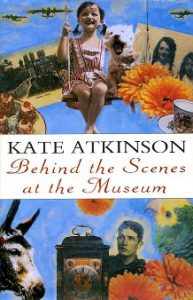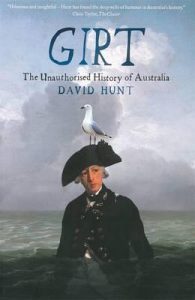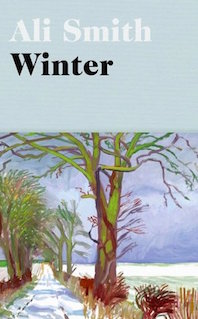 I’d been saving this latest installment of the Rivers of London series for the holidays, when I’d have time to enjoy it, and it was worth the wait. Lies Sleeping is the seventh novel about Peter Grant, Detective Constable and apprentice wizard – part of an ongoing series of novels, novellas, short stories and comics. Ben Aaronovitch has said that he’ll keep writing the books “till I die or people stop reading them”, and while the last few novels have been enjoyable, they have felt a bit chaotic, with concluding chapters that raised more questions than answered them. Fortunately, in Lies Sleeping, the author chooses to focus on one major story line that has been present since the start and brings it to a satisfying conclusion. There are still villains to be thwarted, but it’s good to see justice done.
I’d been saving this latest installment of the Rivers of London series for the holidays, when I’d have time to enjoy it, and it was worth the wait. Lies Sleeping is the seventh novel about Peter Grant, Detective Constable and apprentice wizard – part of an ongoing series of novels, novellas, short stories and comics. Ben Aaronovitch has said that he’ll keep writing the books “till I die or people stop reading them”, and while the last few novels have been enjoyable, they have felt a bit chaotic, with concluding chapters that raised more questions than answered them. Fortunately, in Lies Sleeping, the author chooses to focus on one major story line that has been present since the start and brings it to a satisfying conclusion. There are still villains to be thwarted, but it’s good to see justice done.
It’s difficult to discuss this book without giving away plot details, but here are my vague, spoiler-free thoughts.
Things I loved:
– I am not usually a fan of fight scenes, but I absolutely love all the bits where Nightingale unleashes his power, whether he’s blasting his enemy through the ceiling or ‘persuading’ a suspect to answer his questions.
– There’s plenty of fascinating London history, going back to the Romans, and it’s actually related to the plot, rather than simply being Peter getting distracted by architecture. Not that I ever mind Peter rambling on about history. The more history, the better.
– Peter’s narration is always so much fun (“I was pleased to discover that the patented acid-resistant soles of my Doc Martens were also vampire resistant”) and I love when his geeky fanboy knowledge comes in handy for interpreting, say, Dwarvish runes (“From the films, though, not the books”).
– Guleed the Somali Muslim Ninja doing … what she does.
– That there was finally some acknowledgement of the immense psychological stress that affects anyone involved in Folly business. You know things are bad when both Seawoll and Nightingale are urging Peter to see a therapist.
– I also liked that there was some discussion of religion, with Peter discussing how he’s an atheist, even though his girlfriend is literally a goddess. I’d really like to hear Guleed’s thoughts on this.
– Seawoll co-operating with Nightingale! And Stephanopoulos being so heroic!
– That thing that happens involving Molly! The backstory was awful, but the end was so lovely.
– All the callbacks to previous books, which gives me hope that my still-unanswered questions will eventually be addressed in a future book.
And things that made me go hmmm:
– Abigail. For all the same reasons I didn’t like her characterisation in The Furthest Station. At one stage, Aaronovitch mentioned a spin-off YA series starring Abigail and I really hope he doesn’t go ahead with that. I know this is a fantasy series, but Abigail is meant to be a regular London kid and yet she’s turned into SuperPerfectAbigail.
– There are always plot holes in these books, which I usually ignore, but there were a few scenes when things obviously happened to create interesting conflict or prolong the narrative, not because they made any sense, and that’s annoying.
– I was also annoyed that readers need to have read all the related novellas, comics and associated works to understand everything in these novels. I’ve read three of the five (or six?) comics, so I picked up some references, but there were other bits where I felt I was missing something. For example, has there been an explanation of the foxes in one of the comics? (The foxes were great, by the way, just confusing.) And the religion discussion takes on a different meaning if you know that Max is an acolyte of Beverley’s, not just her handyman. The problem is that I far prefer the books to the comics, because the comics are the old-fashioned kind, full of Ladies With Implausibly Large Breasts Who Tend To Wear Skimpy Clothes Or Be Naked For No Apparent Reason, alongside a lot of Violent Gentlemen With Excessive Muscles. I don’t want to have to read more of the comics, but now I suppose I’ll have to, and that makes me grumpy.
– I cannot see how anything good can come of Nightingale’s offer to teach magic to that particular character whom Peter correctly labels “entitled”, although I suppose it could lead to exciting magical battles down the track.
Overall, though, I really enjoyed this and I’m looking forward to the next book, due in June. If you’ve read this and have any thoughts, please do comment below – just assume there’ll be spoilers in the comments.



 I also liked John Safran’s
I also liked John Safran’s  For some reason, none of the Young Adult books I read this year captured my interest. I’m sure it was me, rather than the books, which were mostly well-reviewed and award-winning. I had more luck with books aimed at younger readers. I liked
For some reason, none of the Young Adult books I read this year captured my interest. I’m sure it was me, rather than the books, which were mostly well-reviewed and award-winning. I had more luck with books aimed at younger readers. I liked 
 It’s especially nice that books and writing (and an enormous thesaurus) are the key to most of Mia’s eventual successes, whether she’s penning a threatening letter to the exploitative boss of an illegal immigrant friend or she’s writing down her family’s story to win a class competition. I must admit that the novel’s conclusion seemed implausibly optimistic and saccharine to me, but by that stage, I was so happy to see good triumph over evil that I didn’t mind too much. The author,
It’s especially nice that books and writing (and an enormous thesaurus) are the key to most of Mia’s eventual successes, whether she’s penning a threatening letter to the exploitative boss of an illegal immigrant friend or she’s writing down her family’s story to win a class competition. I must admit that the novel’s conclusion seemed implausibly optimistic and saccharine to me, but by that stage, I was so happy to see good triumph over evil that I didn’t mind too much. The author, 




